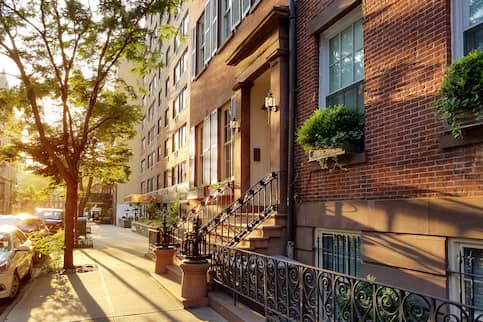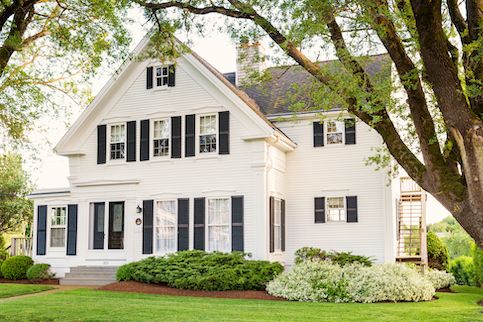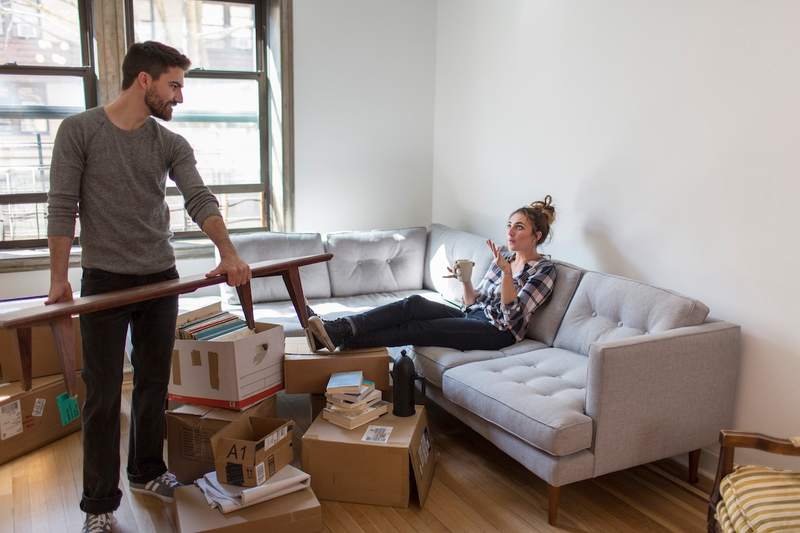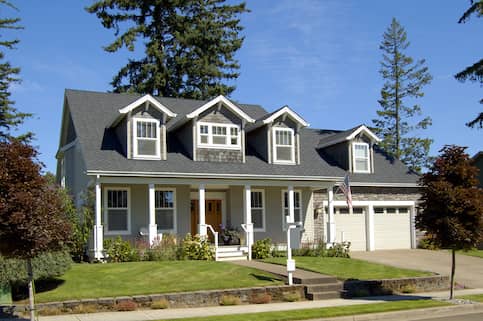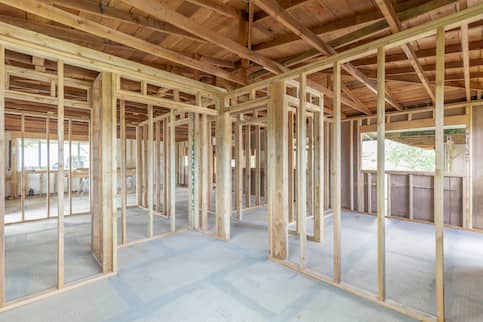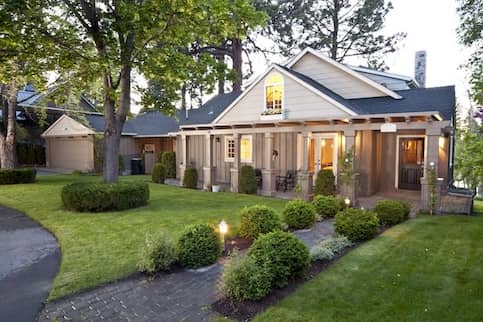How To Buy A House With No Money Down

When you start exploring homeownership options, the big price tag might have you wondering if you can buy a house with no money down. While most mortgages require a down payment, some types of mortgages don’t, which means you can move into a house without putting money down.
We will explore how you can purchase a home without making a down payment.
Can You Buy A House With No Money Down?
Yes, it’s possible to purchase a home without making a down payment. And even if you don’t qualify for a no down payment loan option, you might be able to finalize your purchase with a minimal down payment.
While it’s possible to buy a house with little or no money down, you’ve likely heard about a 20% down payment requirement. The myth surrounding the 20% down payment requirement is based on the idea of avoiding private mortgage insurance (PMI) or a mortgage insurance premium (MIP). Typically, home buyers who put down less than 20% on a home purchase will pay one of the two, depending on their loan. This type of insurance protects the lender in case you default on the home loan. This required insurance adds to your monthly mortgage payment.
Additionally, making a smaller down payment means you could face a higher interest rate, which leads to higher borrowing costs in the long run.
Take the time to run the numbers on your home purchase. In some cases, it might make sense to wait and save for a down payment before moving forward with the purchase. You’ll avoid the extra costs of mortgage insurance or higher interest charges.
See What You Qualify For
Home Purchase
Home Refinance
Tap Into Equity
Are No Down Payment Mortgages Available?
No down payment mortgages are almost always government-backed loans, which means they come with other eligibility requirements to consider beyond a down payment.
Below is a closer look at two of the most popular no down payment loans.
VA Loans
If you’re a veteran, active-duty service member or eligible surviving spouse, you may qualify for a VA loan. VA loans are backed by the Department of Veteran Affairs and are a great option if you want to buy a home without a down payment.
One of the biggest advantages of taking out a VA loan is that you won’t have to pay mortgage insurance. Instead, you’ll pay a one-time VA funding fee that’s usually about 1.25% – 3.3% of the entire loan amount. Disabled veterans and some others may qualify for a waiver of the VA funding fee, so ask your lender if you qualify to have it waived.
To qualify for a VA loan, you typically must have a credit score of at least 580. You also must meet the following requirements:
- Served 90 consecutive days of active service during wartime
- Served 181 straight days of active service during peacetime
- Served for more than 6 years in the National Guard or Reserves or at least 90 days under Title 32 orders, with at least 30 consecutive days
- You were discharged with a service-related disability
- You’re the spouse of a service member who died in the line of duty or from a service-related disability
If you qualify, you may be able to roll the closing costs into your loan to avoid most of the upfront costs of homeownership.
USDA Loans
A USDA loan is a zero-down mortgage backed by the United States Department of Agriculture.
The government offers these loans to encourage people in designated rural areas to buy homes. You can take out a USDA loan with no money down, and these loans typically come with lower fees. But before you apply, you need to see if the home is in a qualifying area.
You can check out the USDA’s map of eligible areas to find out if your home qualifies.
In addition, the home must be a single-family unit and cannot be a working farm. You also must live in the home as your primary residence – USDA loans cannot be used to purchase rental properties.
You also must meet specific financial requirements to qualify. Your gross household income cannot exceed 115% of the median income in the county the home is located in. Your debt-to-income ratio can’t exceed 45%, and you must have a FICO® Score of at least 640. But lenders may have other eligibility requirements for borrowers.
Are Low Down Payment Mortgages Available?
If you don’t qualify for a mortgage with no down payment requirement, finding a very low down payment mortgage option is the next best thing. Below are some of the mortgage options that have low down payment requirements.
FHA Loans
FHA loans are backed by the Federal Housing Administration (FHA) and only require a 3.5% minimum down payment as long as you have a credit score of at least 580. These loans can be good options for individuals with low to moderate incomes.
To qualify for an FHA loan, you must plan to use the home as your primary residence and the property must also meet FHA livability standards. This involves passing a mortgage appraisal process. Plus, you must move in within 60 days of closing.
If your down payment is more than 10%, you’ll pay mortgage insurance for 11 years. If your down payment is less than 10%, you’ll have to pay for mortgage insurance throughout the life of the loan unless you refinance to a conventional loan once you have 20% equity.
Fannie Mae HomeReady
Fannie Mae’s HomeReady program requires a minimum down payment of 3%. But the funds for your down payment can come from multiple sources, including gifts and grant funds. Depending on your situation, you may be able to use outside funds to cover the entire 3% down payment requirement.
In order to qualify, you must have an income of less than 80% of the county’s area median income. Additionally, at least one borrower must have a credit score of at least 620.
Eligible borrowers with income at or below 50% of the area median income can receive a $2,500 grant that may be put toward their down payment and closing costs.
Freddie Mac Home Possible
Freddie Mac’s Home Possible program is another option that requires a 3% down payment. As with the Fannie Mae HomeReady loan, you must have an income of less than 80% of the county’s area median income. Additionally, you’ll need a credit score of at least 620 to qualify. The $2,500 grant is also available to eligible borrowers earning 50% or less of the area median income.
Get approved to see what you qualify for.
How To Buy A House With No Money Down
If you need help coming up with a down payment, there are many down payment assistance programs available. Let’s explore some of the most popular options.
Silent Second Mortgage
A silent second mortgage is a second loan used to make the down payment. The silent mortgage takes second priority to your main home mortgage. With that, you’ll need to make payments to both mortgage loans. But if you default on the loan, your primary mortgage lender will have first dibs on any proceeds from the sale of your home.
Fannie Mae’s Community Seconds or Freddie Mac’s Affordable Seconds are two options for home buyers looking for a silent second mortgage.
First-Time Home Buyer Assistance Programs
If you’re a first-time buyer, there are many assistance programs specifically aimed at helping you purchase your first home. Depending on your financial situation, you may be able to tap into grants for your down payment or for closing cost assistance.
Down Payment Assistance Programs
Down payment assistance (DPA) programs are designed to help prospective homebuyers get their hands on the necessary down payment funds. Some of these programs include grants, forgivable loans, and zero-interest loans.
If you pursue a down payment assistance program, be prepared to provide significant information about your financial situation to qualify. In general, you’ll need to meet specific eligibility requirements before you can reap the benefits of a down payment assistance program.
State HFA Programs
Many state and local governments offer assistance programs to first-time home buyers and low-income households. You can use HUD’s database to track down any programs available in your area.
Good Neighbor Next Door
HUD runs the Good Neighbor Next Door program. Through this program, full-time law enforcement officers, teachers and firefighters/emergency responders can buy HUD homes in revitalization zones at a 50% discount. The catch is that you must agree to live in the home for at least 36 months.
Buying A House With No Money Down FAQs
If you want to buy a home with no money down, here are the answers to some of the questions you might have.
Are there any first-time home buyer loans with zero down available?
Some home loan programs, like the VA and USDA loans, offer a 0% down payment option. But other home loans designed for first-time home buyers usually don’t offer a 0% down payment option. Instead, first-time home buyers can expect assistance with covering a down payment or a lower down payment requirement.
Can I really buy a home with no money down?
If you qualify for a 0% down payment loan, you might be able to purchase a house without making a down payment. However, all mortgages come with closing costs that need to be paid as a part of the home buying process.
Should I borrow money to cover my down payment?
Yes, you can get a loan for your down payments. You might take equity out of another property as a down payment for a second property through a cash-out refinance. Keep in mind, though, that doing so will increase the amount of money you’ll pay each month, since you’ll have multiple loan payments. Consider all of the costs before taking out a loan to make a down payment.
Can I use a tax-free gift from my family to buy a house?
Yes, it’s possible to use funds from your family to cover a house down payment. However, there are limits on how much money can be given tax-free each year. If you plan to pursue this option, make sure to get a gift letter that clearly explains the situation to the lender.
The Bottom Line
For many borrowers, the down payment is one of the biggest barriers to buying a home. It can take years for most people to save up thousands of dollars to put toward a down payment. Fortunately, there are ways you can buy a home with low to no down payment.
Get matched with a lender that will work for your financial situation.


